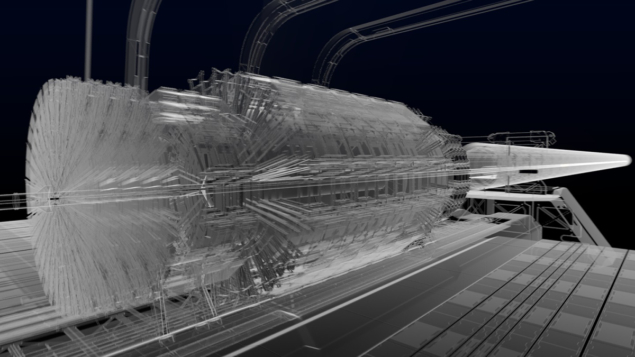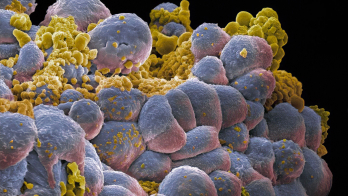Watch this webinar now, sponsored by Hiden Analytical, Agilent Vacuum Technologies and Fujikura
By clicking the “Watch now” button you will be taken to our third-party webinar provider in order to register your details.
Want to learn more on this subject?

Three expert panellists will introduce the motivation for and status of the proposed Future Circular Collider at CERN, followed by a discussion and live questions from the audience, moderated by CERN Courier editor Matthew Chalmers.
» Accelerator physicist and FCC study leader Michael Benedikt (CERN/Vienna University of Technology) will report on the status and scope of the FCC Innovation Study, a European Union-funded project to assess the technical and financial feasibility of a 100 km electron-positron and proton-proton collider in the Geneva region.
» Experimental particle physicist Beate Heinemann (DESY/Albert-Ludwigs-Universität Freiburg) will explain how the Higgs boson opens a new window on fundamental physics, and why a post-LHC collider is essential to explore this and other hot topics such as flavour physics.
» Theoretical physicist Matthew McCullough (CERN) will explore the potential of a future circular collider to address the dark sector of the universe, and explain the importance of striving for the highest energies possible.
Want to learn more on this subject?
 Michael Benedikt (left) completed his PhD on medical accelerators as a member of the CERN Proton-Ion Medical Machine Study group. He joined CERN’s accelerator operation group in 1997, where he headed different sections before becoming deputy group leader from 2006 to 2013. From 2008 to 2013, he was project leader for the accelerator complex for the MedAustron hadron therapy in Austria, and since 2013 he has led the Future Circular Collider Study at CERN.
Michael Benedikt (left) completed his PhD on medical accelerators as a member of the CERN Proton-Ion Medical Machine Study group. He joined CERN’s accelerator operation group in 1997, where he headed different sections before becoming deputy group leader from 2006 to 2013. From 2008 to 2013, he was project leader for the accelerator complex for the MedAustron hadron therapy in Austria, and since 2013 he has led the Future Circular Collider Study at CERN.
Beate Heinemann (middle) completed her PhD at the University of Hamburg in 1999 in experimental particle physics at the HERA collider in Hamburg. She became a lecturer at the University of Liverpool in 2003, a professor at UC Berkeley in 2006 and a scientist at Lawrence Berkeley National Laboratory. She was deputy spokesperson of the ATLAS collaboration from 2013 to 2017, and since 2016 she is a leading scientist at DESY and W3 professor at Albert-Ludwigs-Universität Freiburg.
Matthew Mccullough (right) is a senior staff member in the CERN Theory Department. He completed his undergraduate and PhD degrees at the University of Oxford, followed by postdocs at MIT and CERN. His research interests cover physics beyond the Standard Model, from the origins of the Higgs boson to the nature of dark matter.











